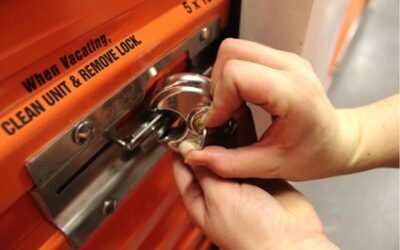You’ve packed up your household belongings, and the moving company has loaded up practically everything you own for the journey from Houston to Denver. But once you arrive in the Mile High City, you learn that you can’t get your stuff unless you cough up an extra $760. Surprise! Your possessions likely are being “held hostage” by a shady mover.
While numbers are hard to come by regarding how many people are victimized in this way, it’s safe to say that many of the thousands of complaints lodged each year against moving companies involve “hostage situations.”
The Better Business Bureau describes these shady practices like this: “Consumers and the moving company agree on a price to move personal belongings. At the end of the move, the movers demand extra fees and hold the belongings hostage unless the fees are paid.”
Under federal law, interstate movers are required to give your belongings to you when you pay 100 percent of the costs in a binding estimate or 110 percent of a non-binding estimate where additional weight or services have caused the final costs to rise, according to InCharge.org.
So, what should you do if you’ve been scammed in a “hostage situation”? Here are six tips.
1. Complain to the Moving Company.
Be sure to file a written complaint with the moving company if you’ve been ripped off in a hostage scam. It may not fix the problem, but at least you’ll have written evidence of your complaint.
2. Call the Cops.
You should notify local law enforcement “if the moving company fails to live up to its promises or threatens to hold your belongings hostage,” according to the Better Business Bureau. However, MoveRescue.com says, cops can step in only if a local or state law has been broken.
3. Contact Government Regulators.
For a state-to-state move, reach out to the Federal Motor Carrier Safety Administration. For an in-state move, reach out to whichever state agency regulates moving companies or to your state’s consumer protection department.
In the case of an interstate move, the Federal Motor Carrier Safety Administration can impose a fine of up to $10,000 a day against a moving company that holds people’s items hostage, according to media reports.
The federal motor carrier agency does take action against movers that hold customers’ possessions hostage. In December, for instance, the agency shut down five moving companies—in Florida, Maryland and South Carolina—that had engaged in “hostage” activity.
4. Notify the Better Business Bureau.
The Better Business Bureau tracks complaints about both interstate movers and in-state movers. While the bureau may not be able to resolve your dispute, your complaint at least could prevent someone else from being ripped off by the same mover.
5. Check Out MoveRescue.com.
MoveRescue is a consumer assistance service aimed at stopping disreputable interstate movers. It’s backed by a network of U.S. law firms, along with moving companies United Van Lines and Mayflower. The service offers legal advice and general guidance to people who’ve been victims of hostage scams and other moving fraud. To get help, visit MoveRescue.com or call 888-368-7238.
6. Do Your Homework.
This actually should be your first step so that you can avoid the five other steps we’ve outlined.
First off, research moving companies you’re thinking about doing business by visiting websites like BBB.org and Moving.org. Any moving company you hire should be licensed and insured. Another online resource is MovingScam.com, which lists moving companies that it has endorsed.
Also, be sure to get written estimates from at least three moving companies; an estimate should be drawn up a representative of each moving company has visited your home.
“It’s unfortunate how people can be taken advantage of during a very stressful time like moving,” said Vee Daniel, president and CEO of the Better Business Bureau in Greenville, SC. “Sadly, it happens, so it’s important to do your homework and seek a reputable company you can trust with your personal possessions.”





